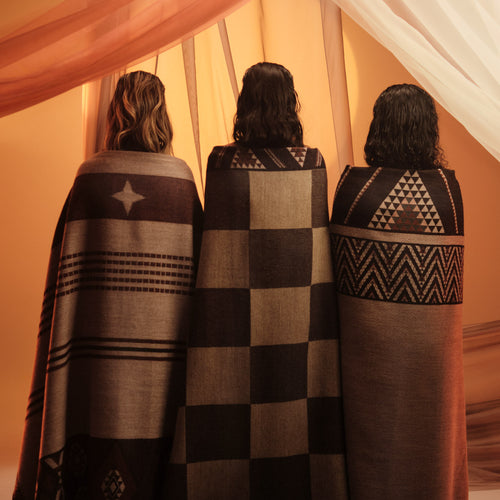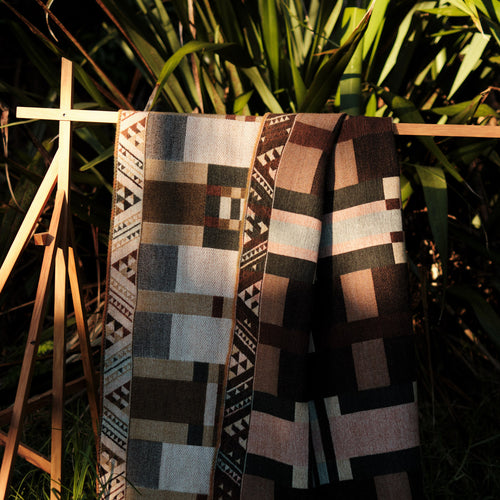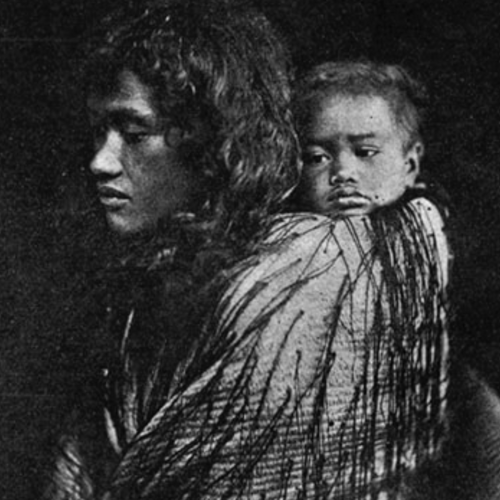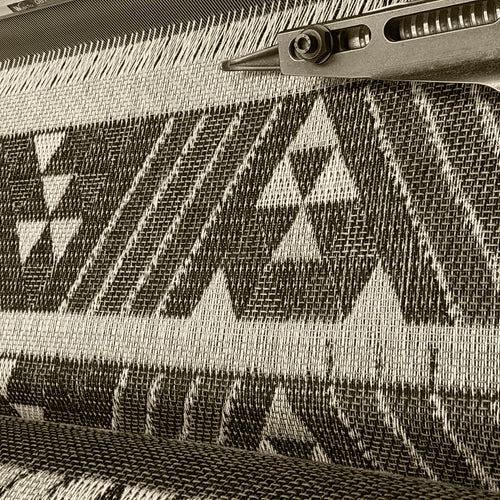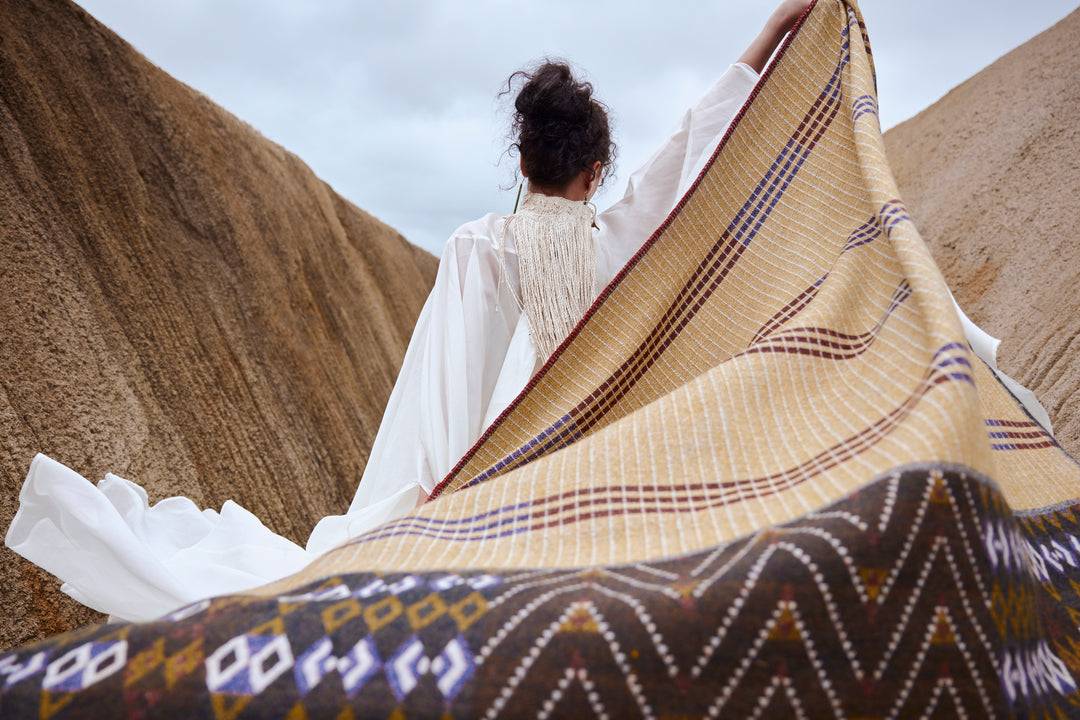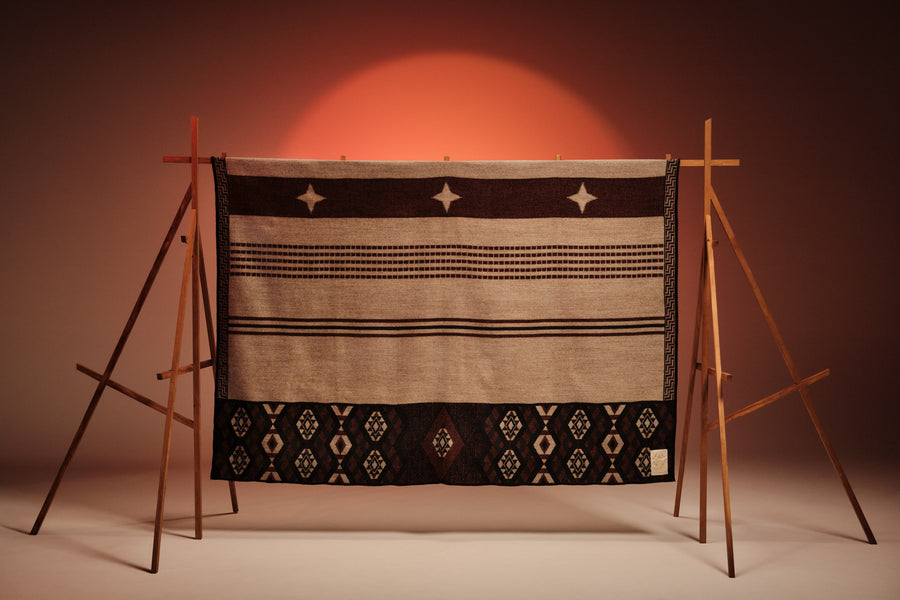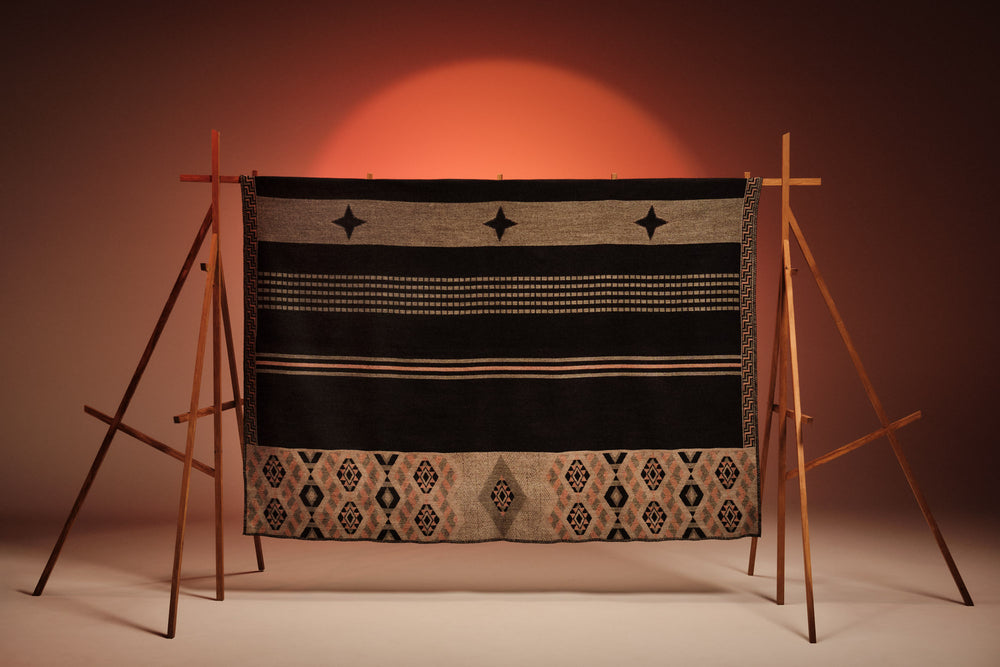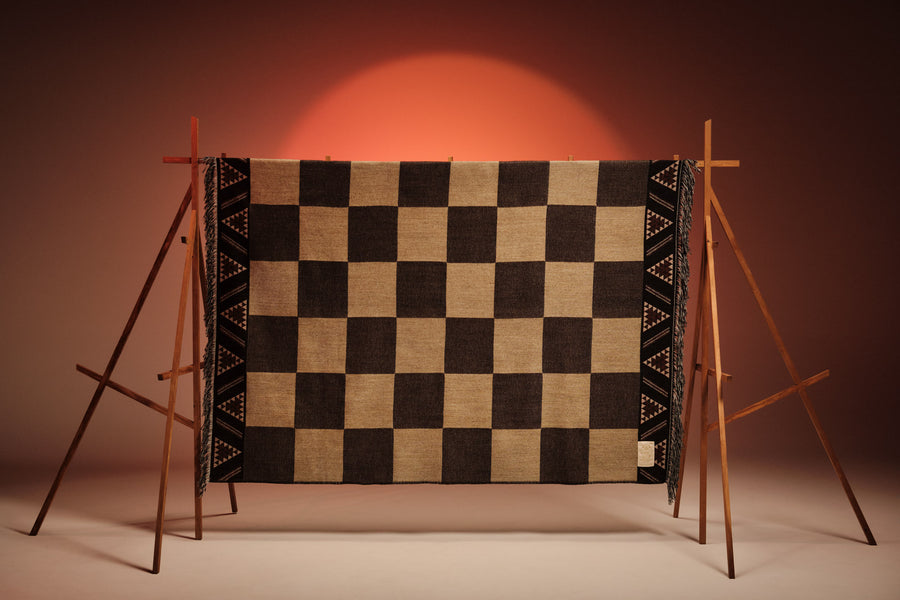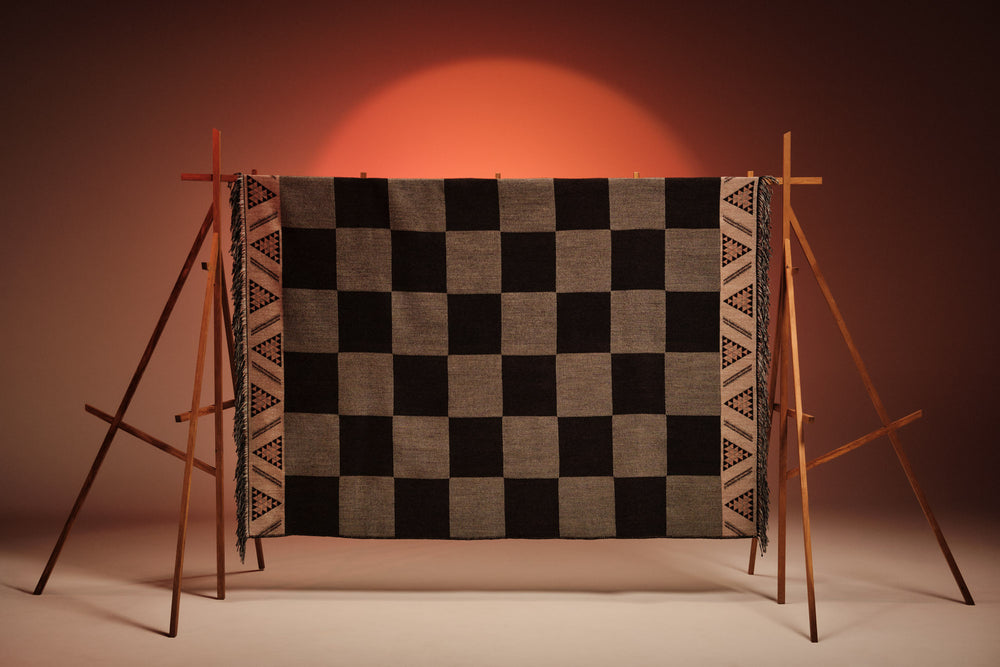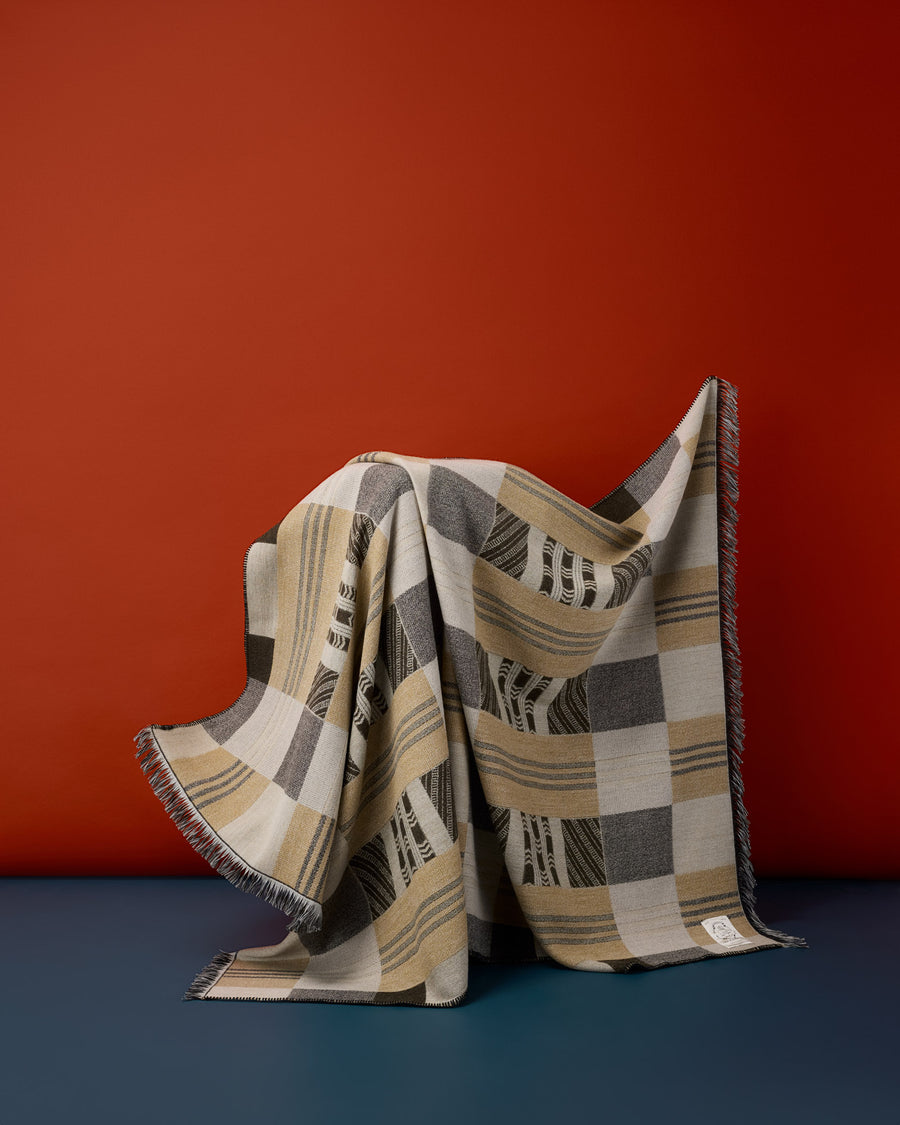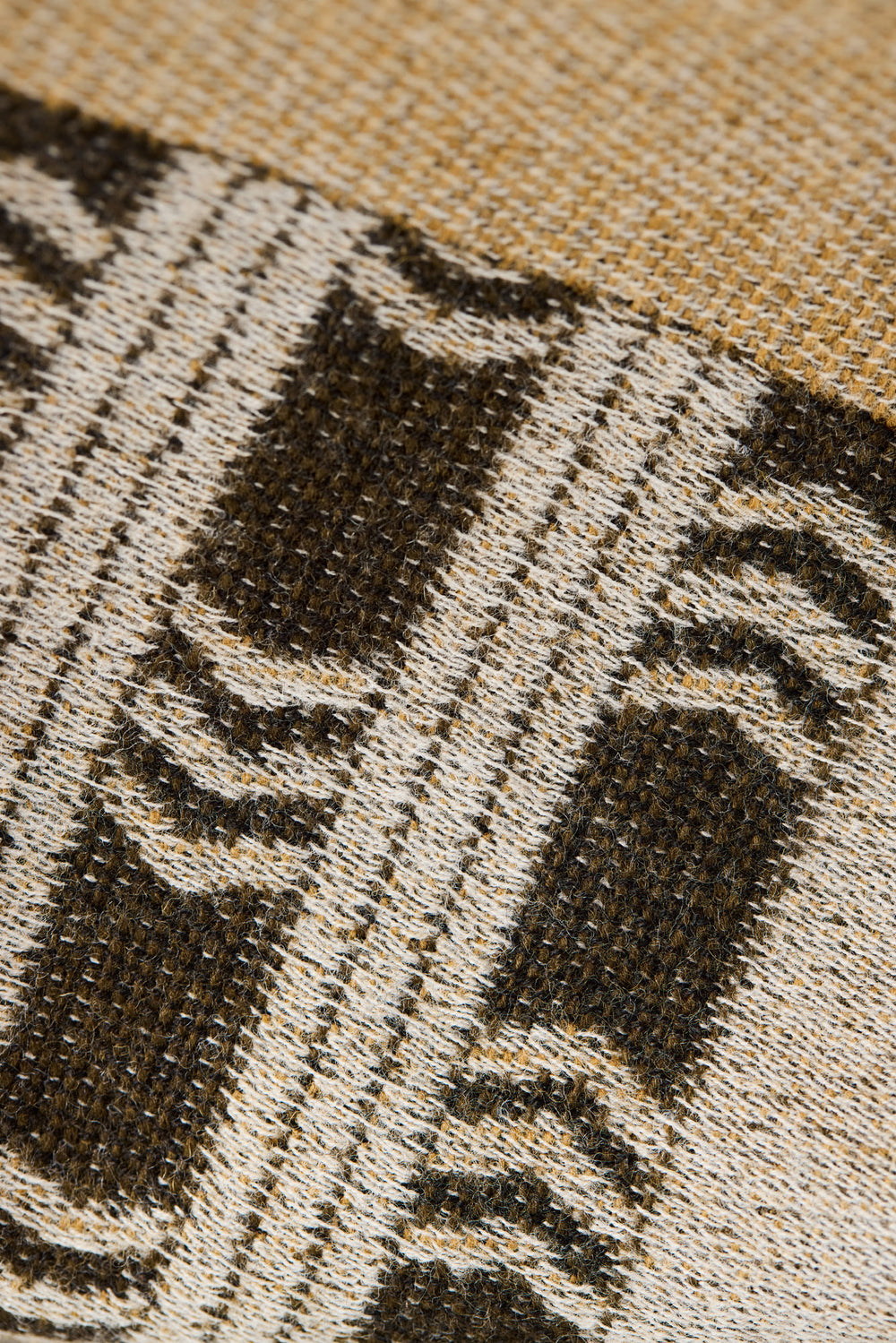Te Manawa Ū - Behind the Weave
Kia ū te manawarere, te manawarere kia ū!
Let your fleeting heart be still - be steadfast!
Rawiri Puhirake - Commander & Chief - The Battle of Gate Pā, 1864.
In the heat of battle, amidst a tirade of musket hail and thunderous cannon fire, outnumbered and outgunned, Commander and Chief Rawiri Puhirake strolled the ramparts of their strategically engineered pā, cool calm and collected pronouncing to a pan tribal collective of war hardened warriors burrowed in trenches dug deep into the earth “kia ū te manawarere, te manawarere kia ū - Let your fleeting heart be still, be steadfast”. Echoes of determination embolden the stout hearted, to hold fast to their common purpose and remain resolute in their strategic plan for victory.

The day would end as one of the only outright victories against the British across the entirety of the NZ Landwars of the mid 1800’s.
Te Manawa Ū - The Steadfast Heart.
This design draws upon the inherent attributes embodied by our forebears at Pukehinahina (Gate Pā) and continually throughout our heritage. It serves as a reminder that we too are of a noble fighting spirit, resolute and purposeful, calculated and adaptable, determined and stout hearted, with the courage and nous to rise up and meet any challenge as we strive for victory.
The battlefield has changed for us today, our campaign for cause for the most part wages war against colonised systems and structures that impose societal expectations and inflict external pressures, we can become overwhelmed with self doubt.
Our design intention is to inspire a sense of relentless ambition, of perseverance and courage.
This stylised kaitaka design acknowledges seeking higher education & self-development as a chiefly trait, to progress pathways of prosperity for the betterment of the collective. The body of the blanket is inspired by the traditional muka (flax fibre) weaving, with each bold coloured horizontal weft reflecting ‘ngā ārai’, the barriers or challenges that present themselves in our pursuits. Often these challenges are internal…
-
whakamā - fear of embarrassment, ashamed
-
whakaiti - feeling belittled
-
māngere - laziness, unfocussed
-
āmaimai - anxiousness from external opinions and attitudes
These barriers are formidable. They can make us question our true motives and intent and even cause us to second guess our self-worth, at times distracting us from the bigger picture and its potential benefit. Furthermore, these challenges remain and can even evolve as we do, whether self-inflicted or amplified in our external world.
Ka riri a taiha, ka kata a maera, while the rangatira grapples with the many problems, the fool laughs at his efforts.

Often our perseverance is strengthened when we lean not only into our own understanding, but rely on our collective support. Te Manawa Ū reminds us of the eminence from which we trace our ancestry, to empower our stance and hold true to our purpose. We endure, focussed on our vision as we recount the immense knowledge invested within us from our predecessors and mentors and recall the valuable insights gained from our lived experience. We surround ourselves with like minded people that constantly tend to our vision as it grows, reaffirming our confidence and belief in self.
We cultivate trust in our own intuition and capability, we reflect on our whakapapa, our network of connection and relationships, with community, the world around us, our past, present & future. We persist, knowing that we have what it takes to achieve our desired goals, with infinite potential to grow. This support structure underpins the ornate designs reflected across the main border featuring waharua, taki toru and pātiki motifs to reflect an interwoven tapestry of knowledge, understanding and experience, available to us at any time.
The decorative side panels are inspired by aorangi designs, traditionally reflective of our natural environment, within this design narrative they represent our maunga, our mountains of fortitude and continual inspiration - our role models, mentors, our standards of excellence, our goals and aspirations.
Kia ū te manawarere, te manawarere kia ū!
Let your fleeting heart be still - be steadfast!
